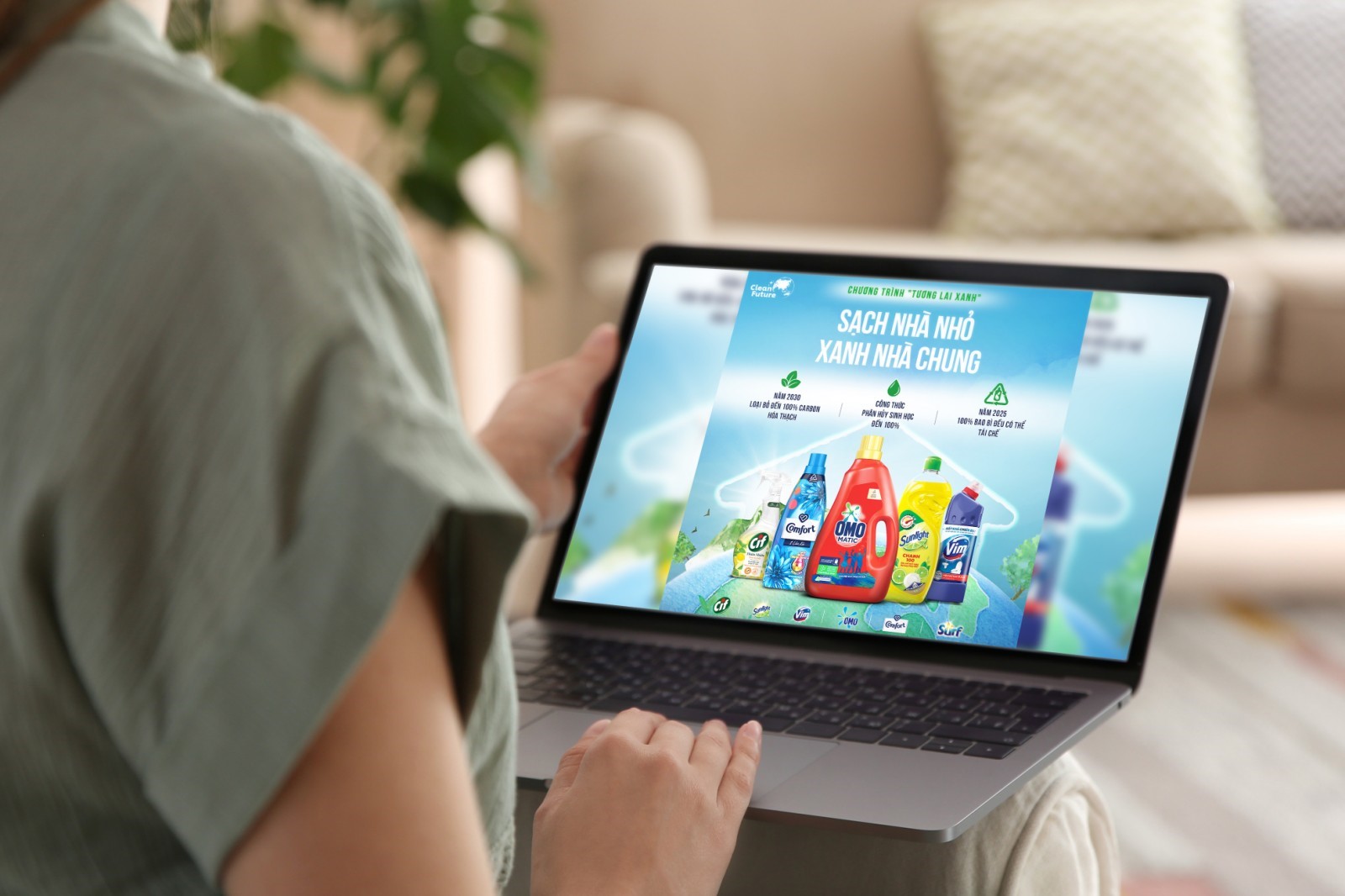The cleaning and laundry manufacturing industry is heavily dependent on fossil fuels – a source of greenhouse gas emissions. Therefore, Unilever Vietnam launched the program “Clean Future”, outlining specific ways to reduce greenhouse gases that cause climate change through reinventing the formulation and packaging of Home Care products.
“Clean Future” is how Unilever is transitioning age-old into biodegrable chemistry in product formulation to not only tackle climate change but also benefit consumers’ health. The program is also transforming product packaging, aiming to use less and better plastic.
Specifically, “Clean Future” will contribute to reducing greenhouse gas emissions in concrete and practical ways.
First, Unilever Vietnam eliminates 100% of Fossil Fuel Derived Carbon from Home Care products and uses 100% biodegradable formulation instead. This helps cut down on fossil fuel extraction which causes carbon emissions in the atmosphere. In addition, the switch to natural, biodegradable formulas promotes skin mildness, better for consumers’ health.
The program, besides, aims to use weight-efficient chemistry. This drastically reduces the amount of the most greenhouse gas- intensive ingredients in Home Care product formulations while delivering the same product performance with afforadable prices. At the same time, this initiative also makes product transportation more efficient, contributing to reducing CO2 emissions.
Additionally, “Clean Future” drives the product concentration. This initiative innovates ultra-concentrated laundry liquid and fabric conditioners, thereby prolonging the time to use up the product contained in one bottle. Product compaction and concentration also allows creating a range of dilutable products, which means that the product will be contained in a smaller bottle and consumers can reuse their old empty bottles to dilute the product. Those contribute to reducing the amount of plastic in packaging production.
Developing sustainable packaging is also an important activity that contributes to reducing CO2 emissions from products. In particular, “Clean Future” commits to reducing the amount of virgin plastic and utilizing post-consumer recycled plastic (PCR) in packaging: by 2025, 100% of Home Care product packaging will be reusable, recyclable, or biodegradable, and more than 25% packaging using PCR.
Moreover, this program in particular will help to galvanise change around SDG3 (Good Health and Well-being), SDG6 (WASH), SDG9 (Industry, Innovation and Infrastructure), SDG11 (Sustainable Cities and Communities), SDG13 (Climate Action), SDG14 (Life below Water) and SDG15 (Life on Land).









